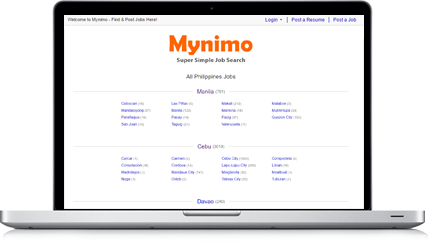How to Advance Your Career While Applying From Home
With COVID-19 still an unresolved issue, we’re likely to see more and more Filipino businesses turn to video-calling solutions such as Zoom, Skype, and Google Meet. The traditional face-to-face interviews that once characterized the Filipino job application experience may soon become a rarity as businesses seek to reduce unnecessary human contact.
Given that most people now own a smartphone with a camera, we are starting to see video calls becoming a standard way to conduct initial interviews for most kinds of jobs — even the ones that normally require a physical presence. Because of the pandemic, even final interviews through video calling apps may become standard.
How does one prepare for this “new normal” of job applications? We suggest to follow the tried-and-tested suggestions below as these might put you well ahead of the pack.
1.) Dress for success
No matter how skilled, experienced, or competent you are, you can easily lose the confidence of your prospective employer by showing up to a video call in a barangay league basketball jersey or a spaghetti strap top. If it’s not attire that you would be comfortable conducting a face-to-face interview in, it’s not appropriate for a video call.
For most applicants, this means wearing a shirt with a collar or a professional-looking blouse. If possible, you should also be wearing the appropriate bottoms as well, just in case you stand up.
2.) Be careful with your social media shares and privacy
Even before the government mandated quarantines, employers have already been checking the social media profiles of job applicants to ensure that they aren’t troublemakers or otherwise a liability at work. While very few employers will directly ask you to add them on Facebook or Twitter, you can be pretty sure that they will be looking at your publicly shared posts and tweets.
Before applying for any job, make sure that your social media posts are set to private so that only very close friends and family are able to see them. Optionally, you may also try to use a more neutral profile and cover pics and account names to avoid turning off potential employers.
3.) Optimize your resume
Keeping your resume updated is one thing, but ensuring they make an impact on your intended audience is another. More importantly, you want to ensure that the resume creates the correct impression. Avoid outdated resume practices and keep your intended employer in mind when you compose it. Be sure to read our previous post on things that ruin your resume and apply the tips in both your resume and work-related social media profiles such as your LinkedIn account.
4.) Enroll in online courses
With so many businesses transitioning to a remote workforce in the wake of the pandemic, it’s likelier than ever that your position will require you to work from home. Demonstrating that you are committed to learning and developing your skills even in the “new normal” by having certification from online courses may prove to be a plus with many forward-thinking employers.
5.) Be easy to contact
All too often, we’ve seen applicants lose a job offer simply because they were harder to contact than their competitors. Given that we’re now spending more time at home than ever before, being difficult to contact is inexcusable. Make sure that your contact details are updated and that any email address that you use for your application is checked regularly.
6.) Be warm and relatable
One of the disadvantages of applying for a job from home is that it may be more difficult to develop a personal rapport with the interviewer. This can be a serious problem. At their core, every interview is both a logical and emotional argument for hiring you. Even if you give the right answers and have the best resume, the benefits of hiring you can fall flat if you’re not able to impact the interviewer emotionally in some way.
While it’s true that you have to conduct yourself professionally, this does not mean you have to be cold. Being friendly while staying within professional bounds is slightly more difficult but not impossible to do on a video call. Here are a few pointers you might find helpful:
-
- Use a friendly tone of voice
- Mirror the interviewer’s use of language. Use Taglish if they use Taglish, or use whatever language they are using the most.
- Look straight at the camera to give the illusion of eye contact.
- Don’t be afraid to smile or use humor when appropriate.
These are only a few of the ways you can keep your career moving forward even if you’re stuck at home. With more and more jobs moving out of the office for good, it’s worth understanding the different ways we can all keep ourselves competitive in tomorrow’s job market.
How else would you move your career forward from home? Comment below!
Be the first to know about the latest Philippines jobs, career news and productivity tips. Sign up today!


